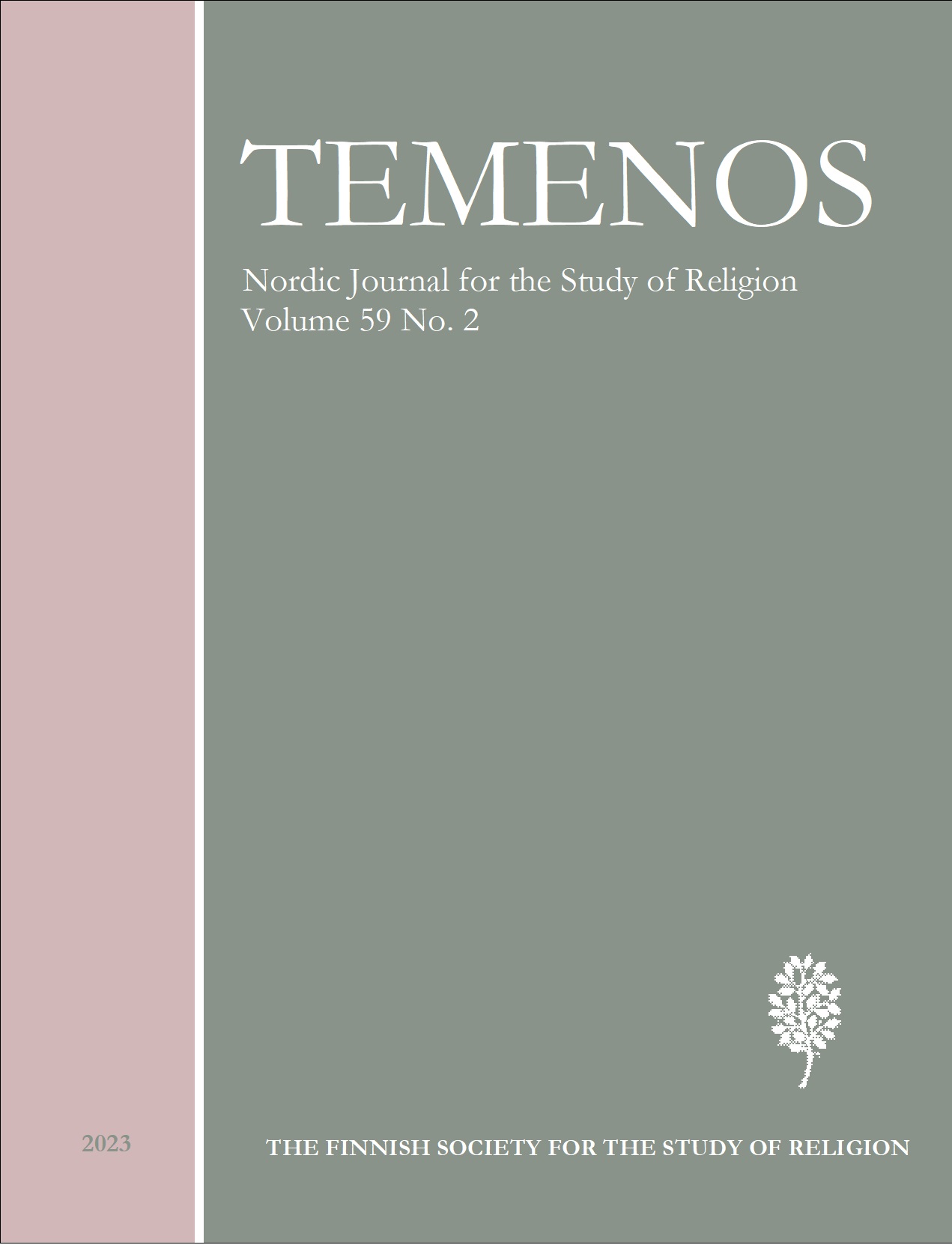Relating to Tradition
Civil Religion and the Evangelical Lutheran Church on Finnish Independence Day
DOI:
https://doi.org/10.33356/temenos.127953Keywords:
civil religion, Evangelical Lutheran Church of Finland, Independence Day, cultural religion, banal nationalismAbstract
By analysing a survey and elicited thematic writings, this article seeks to identify the main elements in the civil religion (CR) of Finnish Independence Day (FID) celebrations, how FID is related to CR, and the role the Evangelical Lutheran Church of Finland (ELCF) plays in FID. It further demonstrates the utility of an open definition of CR in which its relationship with church religion is understood as an open question and tests the various dimensions of CR presented in previous discussions. The CR of FID celebrations centres on its traditional mode in the memory of war and employs other national symbols. The negotiating mode is favoured by younger generations and distances itself from the rituals of the traditional mode, while the critical mode uses the rejection of FID celebrations as a platform for a general social critique. Membership of the ELCF, Finnish as a mother tongue, higher education levels, and an identification with higher social classes are the most important predictors for celebrating FID. In the writings the ELCF’s role is associated with the traditional mode in blending with the backdrop of other national symbols, especially those related to the war.

Downloads
Published
How to Cite
Issue
Section
License
Copyright (c) 2023 Jere Kyyrö

This work is licensed under a Creative Commons Attribution 4.0 International License.
Author's Guarantee
- The Author acknowledges that the Work will be publicly accessible on the Internet and that such access will be free of charge for the readers.
- The Author guarantees that the Work is her/his original work that has not been published before and cannot be construed as copying or plagiarism. Furthermore, the Author confirms that the Work contains no statement that is unlawful, defamatory or abusive or in any way infringes the rights of others.
- The Author confirms that she/he has secured all written permissions needed for the reproduction in the Publication of any material created by a third party.
User Rights
Under the CC BY 4.0 license, the Author/s and users are free to:
- Share — copy and redistribute the material in any medium or format,
- Adapt — remix, transform, and build upon the material for any purpose, even commercially,
- However, the Work must be attributed to the original Author and source of publication.
The license of the published metadata is Creative Commons CCO 1.0 Universal (CC0 1.0)
Author Rights
The Authors maintain the right to:
- copyright, and other proprietary rights relating to the Work,
- the right to use the substance of the Work in future own works,
- the right to self-archiving/parallel publishing (publisher's PDF allowed).
Rights of Publisher
- The Publisher reserves the right to make such editorial changes as may be necessary to make the Work suitable for publication in the publication, e.g. style of punctuation, spelling, headings and the like.
- The Publisher will publish the Work if the editorial process is successfully completed and reserves the right not to proceed with publication for whatever reason.
- The publication entitles the author to no royalties or other fees. This agreement will be governed by the laws of Finland.






